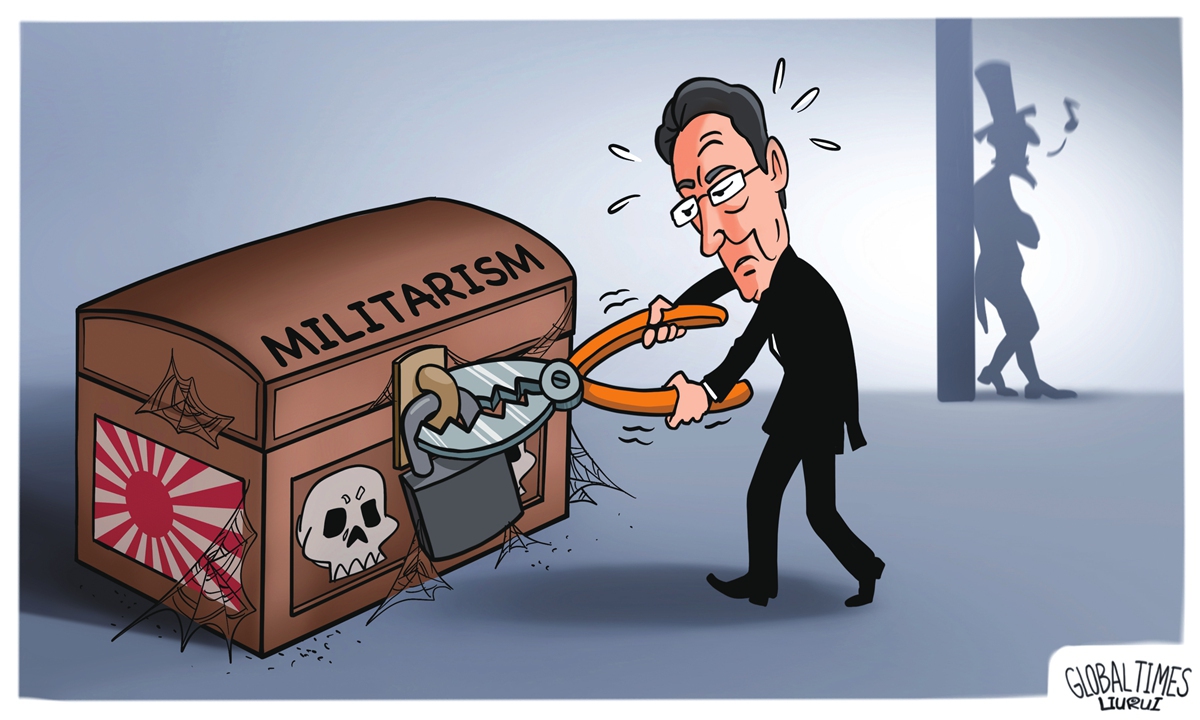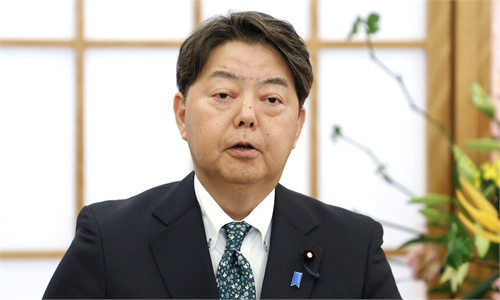
Illustration: Liu Rui/GT
The dynamics in Asia are evolving, with security remaining a critical concern for Asian states."I worry more about Northeast Asia than I do the South China Sea," Singapore Defense Minister Ng Eng Hen said at the final panel discussion of the Shangri-La dialogue on Sunday.
Despite territorial disputes and the interference of external powers, the situation around the South China Sea has remained peaceful in recent years thanks to the joint efforts by China and other claimants. All stakeholders are working toward intensifying negotiations on a Code of Conduct for the South China Sea, in a bid to manage differences and stabilize the situation.
While Southeast Asia is a region that prioritizes peace and stability, Northeast Asia seems to be becoming a weak link in Asian security due to internal and external factors. An Asian version of NATO is taking shape in the region, with China as the perceived target of encirclement. Both Japan and South Korea are taking a clear pro-US stance, with Japan being in talks to open a NATO office in Tokyo and South Korea reportedly looking to join the Quad working group at an accelerated pace. South Korea also made a string of provocations against China over the Taiwan question recently. The US, Japan and South Korea will soon launch a system to allow real-time sharing of information about North Korean missiles by the end of this year. Just on Saturday, an American destroyer and Canadian frigate conducted a provocative transit in the Taiwan Straits, deliberately stirring up trouble and risk in the region.
All of these developments are exacerbating Asian security concerns. The remarks by the Singapore defense minister highlight the anxiety and apprehension of smaller Asian countries, especially those within ASEAN. From an economic standpoint, ASEAN's development cannot go far without cooperation with China, Japan and South Korea. A tumultuous Northeast Asia means a jerry-built economic driving force for ASEAN. In terms of security, ASEAN does not want to be involved in a security dilemma in which certain regional countries increase their military capabilities and form alliances to enhance their own security, thereby threatening other states.
ASEAN countries do not want to take sides between China and the US. However, Japan is placing its own security above the security of other regional countries. Early this year, citing concerns over China and Russia, Japan announced plans to increase defense spending to 2 percent of GDP by 2027, or 60 percent over five years, making it the country with the third-largest defense budget in the world. This has raised alarm among regional countries. Ng said "We've never been to this situation where Japan spends that much, and it will be good of them to pay attention to the constant reassurance of (its) ASEAN neighbors and China."
Japan has been trying to expand its security role in Asia, but many Asian countries have suffered from its WWII aggression. Japan still has "unresolved animosities that are not far from the surface" with its neighbors, said Ng. He also emphasized, "The most important thing Japan can do for stability in Southeast Asia is to improve its relations with China."
The current relationship between China and Japan is unhealthy, largely due to Japan's wrong approach toward China. Although Japan's diplomatic bluebook 2022 carried a more restrained tone by referring to China as a "strong security concern," the 2023 edition released in April did not hide Tokyo's assertiveness by calling Beijing its "greatest strategic challenge."
Consequently, many of Japan's actions can be interpreted as addressing the "challenge" that China poses. In March, Japan announced its plans to tighten rules on exports of 23 types of advanced semiconductor manufacturing equipment, joining the US in curbing the sale of key technology to China. The NATO office in Japan under discussion, Japan's coordination with the US' Indo-Pacific Strategy, and its interference in the Taiwan question all serve the goal of encircling China.
Japan should strictly stick to the four political documents, namely the China-Japan Joint Statement inked in 1972, the China-Japan Treaty of Peace and Friendship of 1978, the China-Japan Joint Declaration of 1998 and the joint statement on advancing strategic and mutually-beneficial relations in a comprehensive way that was signed in 2008, to reassure ASEAN countries and improve relations with China.
Japan's actions have deviated from its commitments and it now "talks one thing but does another." During discussions with Chinese leaders in Beijing in early April, Japanese Foreign Minister Yoshimasa Hayashi pledged not to decouple from China, saying Japan would not adopt a "de-Sinicization" approach. But what Japan is doing is nothing but "decoupling."
Japan should display its sincerity to address concerns from regional countries and improve ties with China, rather than merely putting on a show like the US, whose constant tactics call for communication with China, but do not create the necessary conditions and atmosphere for communication.
The author is a senior research fellow at Center for Asia-Pacific Studies, the Institute for Foreign Policy Studies under the Shanghai Institutes for International Studies. opinion@globaltimes.com.cn

